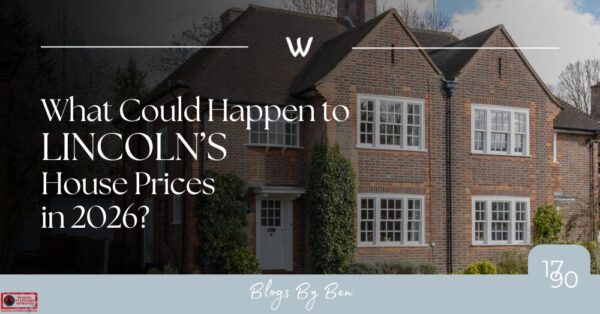You’ve all heard of retirement, right? That golden age of relaxation and freedom. But have you come across “rentirement”? No, that’s not a typo. It’s a blend of “rent” and “retirement,” and it’s a critical issue we need to talk about.
In Lincoln alone, we have a staggering 1,664 households, aged between their early 50s and mid-60s, who are privately renting. They don’t own the homes they live in. Think about that: they’re heading towards retirement age with no bricks and mortar to call their own, and the implications for them, their families, and indeed, Lincoln’s entire social and economic fabric are vast.
Let’s call this what it is: a slow-moving crisis, often hidden behind those “to let” signs, fueled by decades of housing policy that, frankly, prioritized homeownership above all else, leaving some significant segments of our population behind.
So, what exactly is “rentirement”?
As I mentioned, it’s about those entering their mature years, still paying rent, rather than owning their homes outright. And for most, this isn’t a lifestyle choice. It’s the stark result of economic reality.
Unlike traditional retirees, who might have cleared their mortgages and can rely on relatively low housing costs, “rentirees” are staring down the barrel of paying rent every single month for the rest of their lives. And with the average rent in Lincoln currently sitting at £885 per month, that’s no small chunk of their often-limited retirement income.
Let’s break down the numbers. The average 50- to mid-60-something single person retiring in Lincoln is likely to rely on a monthly income of around £1,208. That includes the state pension of £756 per month, perhaps with a modest private pension topping it up. Once that £885 in rent is paid, that leaves very little breathing space.
Here’s the stark math:
£885 in monthly rent over 20 years? That’s £212,400 per household.
Now, multiply that by the 1,664 fifty- to sixty-four-year-old Lincoln renters, and we’re looking at a combined cost of £17,671,680 a year, or a staggering £353 million over the next 20 years.
That money comes from their monthly income, their savings, or is sadly subsidized by the taxpayer through housing support. It’s simply not sustainable, and crucially, it’s not being talked about enough.
Why are so many older Lincoln residents still renting?
So, why are so many older Lincoln residents still renting? And before I answer that, let’s be clear: this isn’t just a “50-something” problem. Would it surprise you to know that 697 households in Lincoln, aged 65 and over, are still privately renting and collectively spend £16.6 million a year on rent?
For many, this journey started decades ago. Some never managed to pull together a deposit when house prices were soaring. Others didn’t earn enough to qualify for a mortgage. Life events like divorce or unforeseen circumstances pulled the financial rug from under them. And the dream of social housing? That faded when council homes were sold off in the 1980s, and waiting lists now stretch for years. Owning a home just never happened, and for many, it’s now almost certainly too late.
Is this just a Lincoln issue? Absolutely not. It’s a national one. However, Lincoln’s unique demographics, with an aging population and a reliance on private rentals without large-scale local authority housing, certainly don’t help matters.
Now, renting is common in countries like Germany and the Netherlands, but retirement looks very different there. Families often cascade wealth down through generations, and many renters in their 50s and 60s use their inheritance to eventually buy. That’s simply not the norm here in the UK—not yet, anyway.
A fork in the road for younger generations?
Ironically, Lincoln’s younger residents, those in their 30s and 40s, may find themselves in a stronger long-term position. Many are likely to inherit equity from their older homeowner parents. When that wealth is passed down in the coming decades, some will invest in property, giving them the security that some of the older generation sadly never had. But for now, the current crop of “rentirees” are heading into their later years with no safety net, and very little political attention.
So, what does this mean for Lincoln landlords?
If you’re a buy-to-let landlord in Lincoln, this isn’t a doom story. In fact, it’s a demographic opportunity.
This group of older Lincoln renters isn’t going anywhere. They are long-term tenants. They want stability. They tend to take excellent care of their homes. And if treated fairly, they are much more likely to stay for years, providing a stable income stream for landlords.
However, they also have limited means. So, as a landlord, it’s worth thinking long-term, offering fair rents, supporting stability, and recognizing that older tenants are not high-risk. In fact, they are the backbone of many successful portfolios.
At the same time, demand for certain types of homes, particularly bungalows, will continue to rise. Yet, builders aren’t constructing them. Why? Because bungalows require more land, and more land equals higher costs. A three-bedroom house can be stacked upwards; a bungalow cannot. This imbalance between demand and supply will only further drive up prices, and consequently, rents. So, landlords holding bungalows in Lincoln are in a very strong position.
Now, there’s another side to the “rentirement” coin that deserves mentioning. For some Lincoln retirees, renting offers flexibility. No home repairs to worry about, no responsibility for roof leaks or boilers breaking down. It offers the option to move closer to family or try a new area with ease. Some retirees even choose to rent, selling their property to unlock capital and truly enjoy their retirement. But they are the exception, not the rule. The vast majority of Lincoln’s “rentirees” didn’t plan it this way. They simply fell into it.
And for them, there are significant considerations.
Firstly, rental inflation: Rents are unlikely to go down, putting continued pressure on limited incomes.
Secondly, security: A landlord may decide to sell, and that’s a stress no retiree should have to face.
And finally, personalization: Renting inevitably means limits on making the space truly your own.
So, the crucial question Lincoln needs to ask is this: What happens when more than 1 in 10 local retirees can’t afford a roof over their heads without financial aid?
It’s time for councillors, housing associations, and local developers to face this head-on. Lincoln desperately needs a comprehensive strategy for housing an aging population who rent. We need more than just token gestures; we need real planning:
Incentives to build accessible, single-storey homes.
Better long-term tenancy protections for older renters.
Encouragement of inheritance-funded homeownership transitions.
And crucial support schemes specifically for older tenants.
“Rentirement” isn’t just a buzzword. It is the stark reality for hundreds in Lincoln and thousands across the UK. Unless we address it now, that £353 million figure over the next 20 years isn’t just a statistic. It’s a powerful warning to policymakers, to landlords, and to society as a whole.
Renting in your 20s is a phase. Renting in your 40s might be your future. But renting in your 70s and 80s, with no plan in place? That, my friends, is a problem we simply cannot afford to ignore



